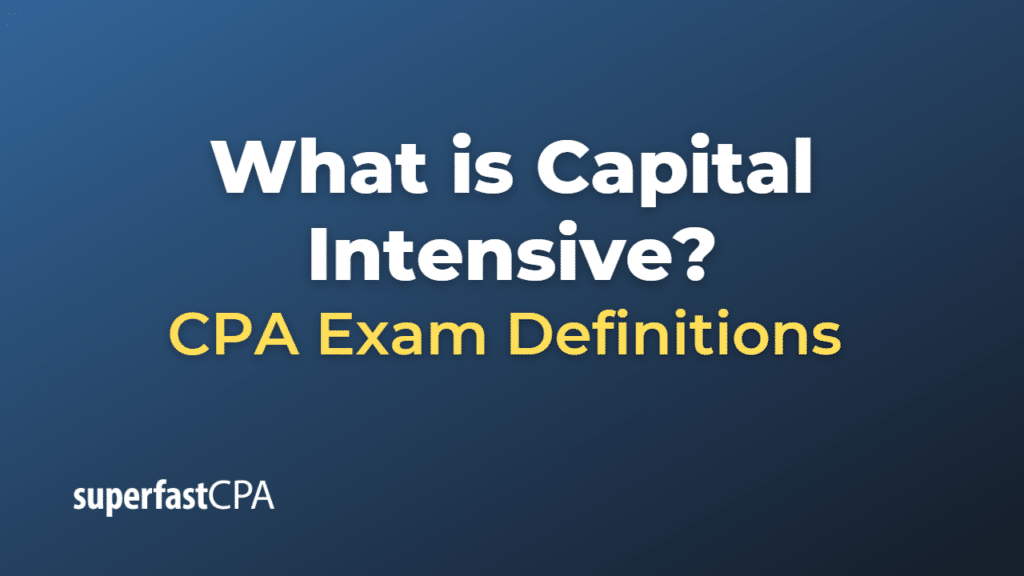Capital Intensive
Capital intensive refers to a business, industry, or production process that requires a large amount of capital investment in fixed assets, such as property, plant, and equipment, relative to the labor employed. Capital-intensive industries typically have a high proportion of their operating costs tied to the acquisition, maintenance, and depreciation of capital assets.
In capital-intensive industries, significant upfront investments are needed to start and maintain operations, and economies of scale often play a crucial role in achieving profitability. These industries tend to have high barriers to entry due to the substantial financial resources required for initial investment.
Examples of capital-intensive industries include:
- Manufacturing: Industries such as automobile production, steel manufacturing, and semiconductor fabrication require substantial investments in specialized machinery, equipment, and production facilities.
- Utilities: Power generation and distribution, water treatment, and natural gas supply companies need to invest heavily in infrastructure, such as power plants, pipelines, and transmission lines.
- Oil and gas: Exploration, extraction, refining, and transportation of oil and gas involve significant capital investment in drilling rigs, refineries, and transportation networks.
- Telecommunications: Companies in this sector need to invest in expensive infrastructure, such as cell towers, fiber-optic networks, and satellites, to provide communication services.
- Transportation: Airlines, railways, and shipping companies require large capital investments in assets like airplanes, trains, and ships, as well as supporting infrastructure.
Capital-intensive industries are often contrasted with labor-intensive industries, which rely more on human labor and have lower capital investments in fixed assets. Examples of labor-intensive industries include agriculture, hospitality, and certain types of services, such as call centers or cleaning services.
Example of Capital Intensive
Let’s consider a fictional example of a capital-intensive company called “SuperiorSolar Inc.”
SuperiorSolar is a company specializing in the production of solar panels for residential and commercial use. To manufacture solar panels, SuperiorSolar needs to invest heavily in fixed assets, such as:
- Land and buildings: The company needs to acquire land and construct a large manufacturing facility to house its production lines and accommodate its workforce.
- Machinery and equipment: SuperiorSolar must invest in specialized, high-precision machinery and equipment for solar cell production, assembly lines, and quality control systems.
- Research and development: The company must invest in research labs and equipment to develop cutting-edge solar technology, improve efficiency, and stay competitive in the market.
- Infrastructure: SuperiorSolar requires investments in logistics infrastructure, such as warehouses and transportation systems, to ensure the timely delivery of raw materials and finished products.
In addition to these capital investments, SuperiorSolar also has ongoing costs associated with maintaining and upgrading its assets, as well as depreciation expenses.
Despite the high capital investment requirements, SuperiorSolar benefits from economies of scale. As the company expands its production capacity, it can achieve lower average costs per unit, enabling it to become more competitive in the market.
In contrast, a labor-intensive company, such as a house cleaning service, would require a much lower initial capital investment. The primary resources for a house cleaning service would be human labor and relatively inexpensive cleaning equipment and supplies.
This example highlights the key differences between capital-intensive and labor-intensive businesses in terms of their investment requirements and cost structures.













